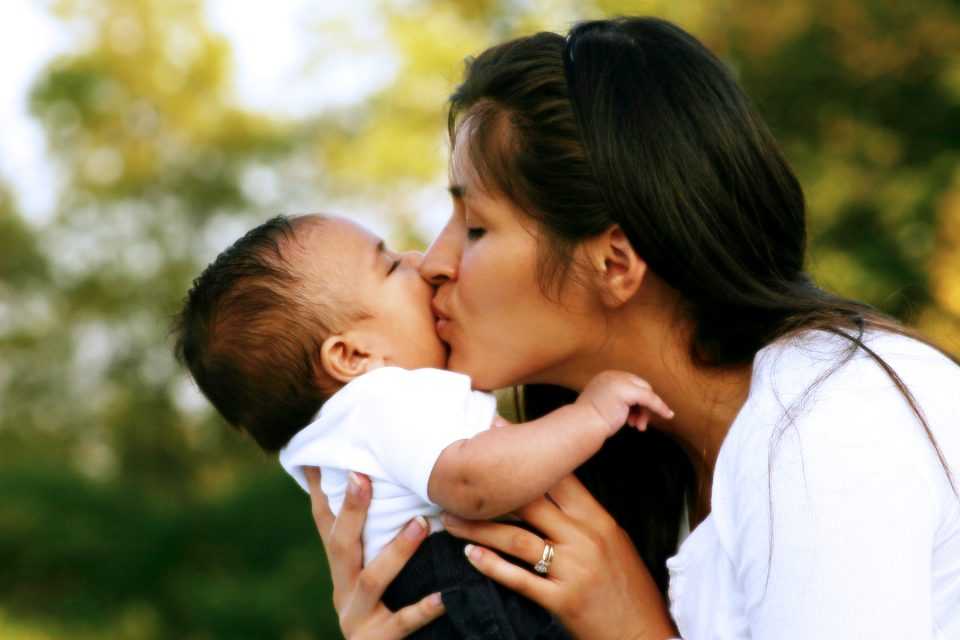Parenting Plan for Infants

Formulating the perfect parenting plan after a divorce or separation is the goal for many families. A parenting plan that supports stable relationships and allows children to grow up in a healthy environment is vital for their long-term happiness. Creating a parenting plan that accomplishes these goals, however, can feel intimidating, especially if co-parenting an infant.
A parenting plan that works for a teenager, middle-schooler, or even a toddler may not be appropriate for children younger than 18 months. Infants have vastly different daily needs than older children, and parenting plans for infants must recognize and account for those differences in order to be successful.
Predictable Routines
Infant parenting plans often focus on the predictability and stability of routines. When they are infants, children are building strong attachments to caregivers and family members, and inconsistent schedules and interactions with parents can cause needless stress.
To meet this need for consistency in their routine, many parenting plans for infants will designate a primary caregiver during this developmental stage. Typically, the infant will reside solely with the primary caregiver while having frequent, day-time contact with their other parent spread throughout the week. In other cases, parents may choose to include occasional overnights with both parents or slightly less frequent but longer day-time contact in their infant parenting plan.
There are many factor parents need to take into account when determining the best course of action, such as:
- Nutrition: Whether a family is using breast milk, formula, or a combination of both, an infant's feeding schedule and nutritional needs can play a big role in determining the best schedule for a family.
- Siblings: If co-parents have older children in addition to an infant, the parenting schedule of the siblings may need to be taken into account when formulating the infant parenting plan.
- Distance and Schedules: For frequent and consistent contact to be maintained between an infant and both parents, the distance between co-parents and their availability must be factored into planning. Parents who live far apart or who have inflexible schedules will have a different parenting plan than those who live down the block from each other and work remotely.
- Conflict: The level of conflict between co-parents may, unfortunately, have an effect on their ability to accommodate frequent changeovers every week.
Co-parents should do an honest assessment of these and other factors before making any big decisions about their infant parenting plan. Plans may look different from family to family, but the right fit should maintain stability for the infant while providing opportunities for regular bonding between children and parents.
Commitment to Cooperation
Committing to raising children in a conflict-free environment is particularly important with infant parenting plans. The typically higher frequency of changeovers when raising an infant puts co-parents in close proximity more often than if they had older children.
If a divorce or separation was amicable, the prevalence of changeovers may not become a source of stress. But if there was conflict during the split, face-to-face meetings multiple times per week give old arguments the opportunity to reignite. When allowed to do so, bad blood and past hurt can become major roadblocks when trying to find a way to support an infant's relationship with both parents.
No matter the tone of a divorce, a commitment to cooperation as new co-parents should be the number one priority when raising children from two houses. Even though infants may not understand the content of their parents' conversations, conflict between them can still have a major impact on infants' well-being.
Sharing Milestones and Updates
There are many 'firsts' to be discovered and enjoyed during a child's infancy. First steps, first words, first time encountering a lemon: no matter how big or small the 'first' is, it can be heartbreaking to hear about it secondhand.
Co-parents should be empathetic with each other when it comes to these moments. Guidelines for regular communication about children should be built into any parenting plan, but parents with infants should pay particular attention to how they intend to include each other in smaller moments.
Whether they are sharing details from a recent medical appointment or a picture from their child's first playdate, co-parents should use a platform that reduces conflict by preventing miscommunication.
Room to Grow
As children grow, their needs change dramatically. Nearly every infant parenting plan, no matter how precise, will reach a point when it can no longer satisfy a child's emotional, mental, and developmental needs. To prevent issues with transitioning into a standard shared parenting schedule as their child grows, co-parents should consider gradually building that transition directly into their infant parenting plan.
Rather than following a single schedule for their infancy and then abruptly changing the routine once the child reaches a certain age, parents should include a plan for easing their way into their new pattern. If trying to decide which ages are best for making these incremental changes, parents may wish to consult a family law or child development professional for help.
Co-parenting an infant after a divorce or separation requires serious planning and a commitment to cooperation and stability. An effective infant parenting plan should protect children from conflict while supporting strong relationships between them and both parents. When creating your own infant parenting plan, choose one that keeps the schedule consistent, the communication open and organized, and your co-parenting conflict-free.


